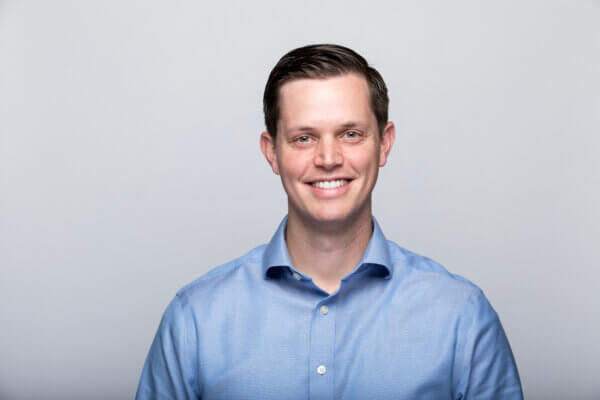
When I was a senior in high school, I got in some big trouble. About halfway through our homecoming dance, my date told me she was bored and wanted to leave to go to a party. I wasn’t much of a risk-taker at the time, but I let myself get talked into the idea.
We snuck out the side entrance (students weren’t allowed to leave before a certain time for safety reasons) and walked to my car. In the parking lot, someone spotted us and asked why we were out there. To top it off, I had a bottle of alcohol in the car (I was completely sober) that I had acquired for the party, and I was only 18 years old. My parents were called, and I was headed to the dean of students for a disciplinary meeting on Monday.
—-
From the time I was young, my dad would tell me to build relationship equity. It started with a focus on being respectful, and speaking to adults like an adult. He advised that when I spoke to adults, that I look them in the eye, speak clearly, and say “yes, sir” or “yes, ma’am.” As I got older, he explained the idea of building equity in relationships. It’s like depositing trust into a bank account, so that when you need to withdraw it, it is available to you.
“We all make mistakes, and when you do, you need to have built up enough trust that they can look past those mistakes and give you another chance.”
Throughout high school, I had done this well. I followed the simple rules, like having my shirt tucked in (we had uniforms) and not chewing gum in class. I wasn’t late to school. I didn’t skip class. I did let my hair get a little long from time to time, which was frowned upon at a school that was a former military school in the early 1900s. But I avoided being in the office of the dean of students for my entire school career, up until that point. He knew me from other activities around the school. He also coached a few of my teams, so I’d had the chance to build trust with him that I was a hard worker and rule follower. To him, this was unusual behavior for me.
When I met with the dean, I wasn’t sure what would happen. I had made a mistake, and I had violated school rules. Due to bringing alcohol onto campus, the potential punishment was an expulsion from school. Fortunately, I received a less severe punishment. The dean trusted that my actions were out of character, and that he could expect me to continue to be a good student.
—-
To me, Relationship Equity became something that I fully believed in after this. I recognized that you can’t get the benefit of the doubt when you make mistakes, if you haven’t built trust with people.
This is why trust is a key component of the equation for our sponsorship programs.
As we aim to create new sponsor-protégé relationships, and move those pairs from new acquaintances to trusted partners, we know we have to help them build trust. You can ask a senior executive to be a mentor―coaching someone in private―but you can’t ask a senior executive to put their necks on the line for an upcoming leader without getting to know them and trusting that they will step up when an executive provides them a new opportunity.
Sponsors―true advocates for other leaders―need time to build trust. With that, the first step in our Sponsorship Journey is EXPLORE. During this phase, we create opportunities for leaders to build relationships, and to get to know one another to build trust. They spend time learning about professional accomplishments, future goals, and areas where leaders have unique gifts. They get to know them, form their own opinions about their potential, and begin to feel connected to, and invested in, the leader’s success.
Whether you are invested in sponsoring someone, looking to earn a sponsor, or building a program for sponsorship in your organization, make sure you focus on relationship equity. Those small deposits over time build the bank account of trust. Without it, you can’t move to the next two phases of the journey where the real sponsorship happens.
About The Author
Robert Seymour: Partner & COO, Signature Leaders
 Rob is a strong business operator with a passion for advancing women in leadership. This passion stems from watching Carol’s career evolve and observing the challenges that his wife faced, and others still face, as women advancing in their careers.
Rob is a strong business operator with a passion for advancing women in leadership. This passion stems from watching Carol’s career evolve and observing the challenges that his wife faced, and others still face, as women advancing in their careers.
Carol’s unique approach to addressing these challenges, focused on providing the highest quality development experiences, compelled Rob to join Signature Leaders.
As Partner and COO of Signature Leaders, Rob drives operations, sales and marketing strategy, content development, and strategic initiatives. Rob oversees the team members at Signature Leaders responsible for program delivery and the Signature Collective, which focuses on alumni engagement. He manages about a dozen of Signature Leaders’ strategic client accounts, and he builds new offerings to meet the needs of all Signature clients. He also writes for Signature’s blog, and he edited and managed the production of Carol’s first book, Wisdom Warriors: Journeys Through Leadership and Life, which provides candid stories from over 70 accomplished business leaders, who share their hard-earned experiences to benefit the leaders rising through the ranks behind them.
In 2013, Rob began serving as the CFO for Signature Leaders while working full time as a Manager in Accenture’s Health practice. As a management consultant, Rob navigated clients through process and organizational changes during large-scale technology transformations.
Rob earned a BS in Economics from the University of Pennsylvania’s Wharton School, where he pitched for Penn’s Varsity Baseball Team for four years. He and his wife, Michelle, live in Los Angeles with their daughter (Blake) and son (Bowen). Rob enjoys coaching sports for his children’s teams, playing golf, finding ways to stay fit, and taking on new challenges in the form of home improvement projects.
